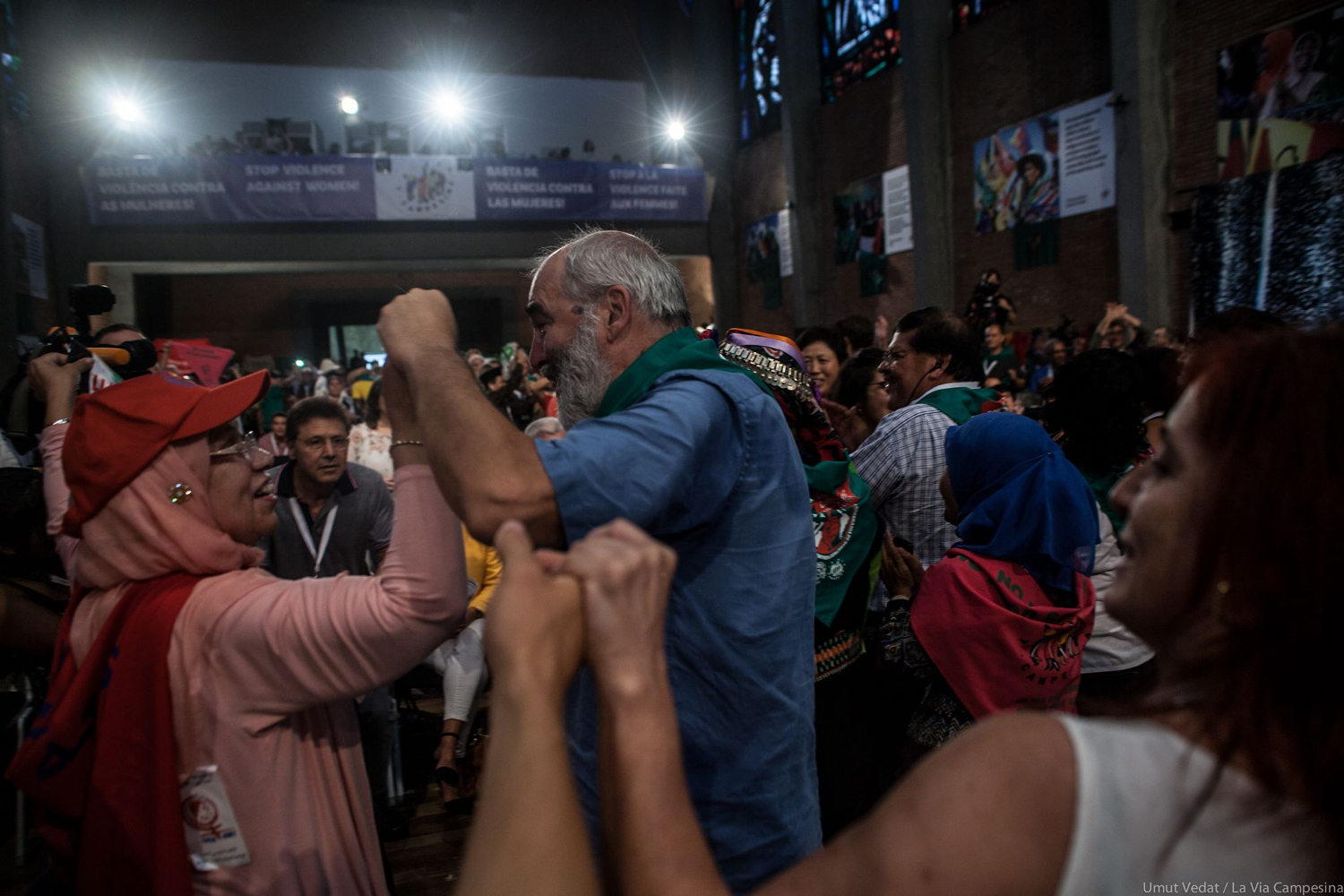Solidarity, equality, social struggles and food sovereignty were the key words during the first day of La Via Campesina’s VII International Conference taking place in Derio, in the Basque Country from 19 to 24 July.
Over 800 representatives from peasant movements and their allies of over 70 countries reiterated their commitment to the peasant struggle and social justice. Following on from the peasants’ Youth Assembly and Women’s Assembly which took place on 16, 17 and 18 July, the conference offers an ideal opportunity for the world’s peasants to continue to exchange information, reinforce or create alliances and, in particular, to identify collective strategies and tools to build another world based on dignity and food sovereignty. As Elizabeth Mpofu, General Coordinator of La Via Campesina, observed in her opening speech “Our enemies are gigantic, which is why we must pool our strengths.”
The day began with a moving opening ceremony in which Basque farmers and artists used a folkloric parade to showcase the wealth of the Basque country’s peasant tradition. Shepherds in traditional dress made enormous bells on their backs chime in unison with every step they made. In the Basque country, these bells are used in rituals to awaken the land to Spring so that it can be cultivated or used as pasture.
Representatives of the Basque country and the host organisation EHNE Bizkaia then took to the stage to welcome participants explaining that “baserri”, referring both to the rural way of life and to the site of typical agricultural production in the Basque Country, is disappearing, and with it agroecology is too.
Regardless of cultural or ideological differences, the peasants are gathered in Derio to discuss problems linked to the global capitalist system. In fact, it was in this spirit that the movement first began. “La Via Campesina started as the voice for those without a voice,” explained peasant Henry Saragih of the organisation SPI (Serikat Petani Indonesia).
Created almost 25 years ago, in the years following the end of the cold war, the movement began with a strong focus on the struggle against free trade agreements and the intensive farming model. Since then many other struggles were added.
“We now need to get to a point where everyone recognises the rights of rural workers” said Ndiakhate Fall of the National Council for Rural Cooperation (CNCR – Conseil National de Concertation et de Cooperation des Ruraux) in Senegal. “La Via Campesina has been working for years with the United Nations to make this happen. We also need peasant agroecology to be disseminated as a production model. We therefore must continue to build strategic alliances for the peasant struggle at the global level”.
Echoing his words, Eberto Díaz Montes, from the National Federation of Agricultural Trade Unions (FENSUAGRO – Federación Nacional Sindical Unitaria Agropecuaria) in Colombia added that the future of the movement depends on the young people. “Youth have to take the reins; it is up to them to continue the peasant struggle and La Via Campesina’s values.”
Opening Day of the VII International Conference of La Via Campesina

